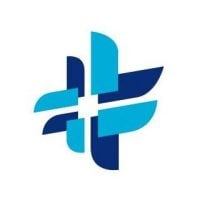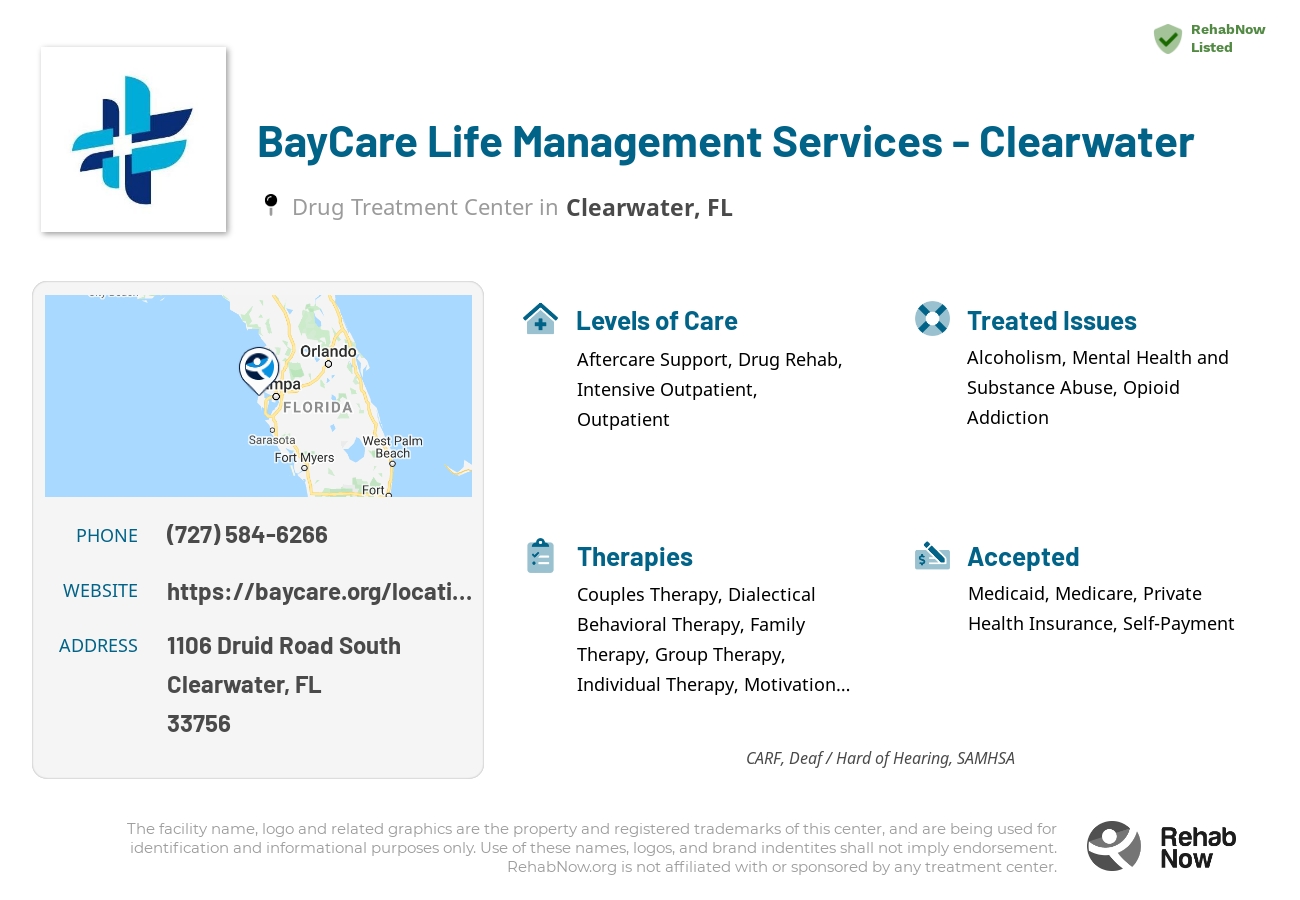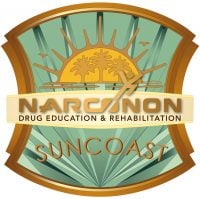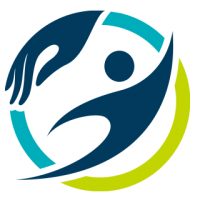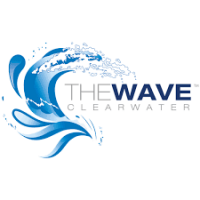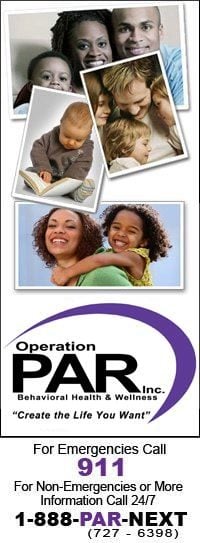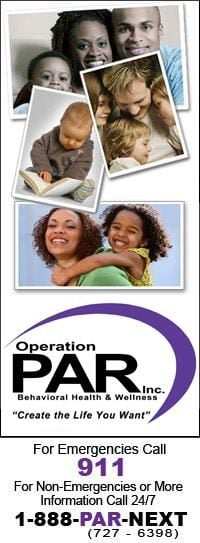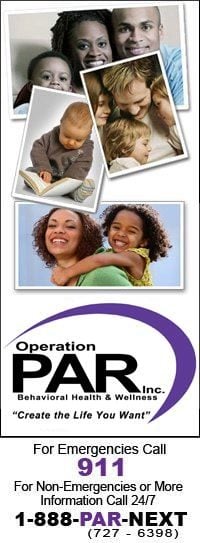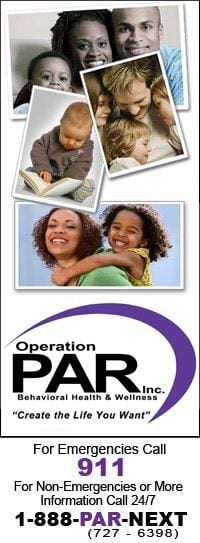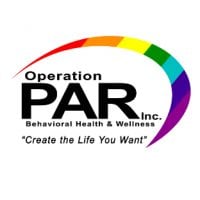BayCare Life Management Services - Clearwater
Drug Rehab Center in Clearwater, Florida
BayCare Life Management Services is an accredited addiction and mental health services provider, based in Clearwater, FL, offering a comprehensive range of evidence-based therapies, including DBT, REBT and CBT, as well as private health insurance acceptance.
About This Florida Facility
BayCare Life Management Services - Clearwater is an addiction treatment facility located in Clearwater, Florida. Established in 1997, this facility specializes in providing comprehensive care for individuals struggling with alcoholism, opioid addiction, dual diagnosis, and drug addiction. Accredited by CARF (Commission on Accreditation of Rehabilitation Facilities) and SAMHSA (Substance Abuse and Mental Health Services Administration), BayCare Life Management Services offers a range of treatment options to cater to the unique needs of each patient. They accept private health insurance and are affiliated with Baycare, ensuring access to high-quality care and support.
At BayCare Life Management Services - Clearwater, individuals can access various levels of care to address their addiction and substance abuse concerns. They provide aftercare support, offering ongoing assistance and resources to help patients maintain their recovery after completing treatment. The facility also offers drug rehab services, helping individuals overcome their dependencies through a combination of therapy, counseling, and medical interventions. Additionally, they provide intensive outpatient programs, allowing patients to receive structured treatment while still maintaining their daily responsibilities. With a focus on outpatient care, BayCare Life Management Services - Clearwater ensures that individuals can receive the support they need while balancing their personal and professional lives.
Genders
Ages
Modality
Additional
Accreditations
SAMHSA

CARF
The Commission on Accreditation of Rehabilitation Facilities (CARF) is a non-profit organization that specifically accredits rehab organizations. Founded in 1966, CARF's, mission is to help service providers like rehab facilities maintain high standards of care.
Conditions and Issues Treated
Opioid abuse has become a national epidemic in the last decade. The US has one of the world’s highest rates of opioid use and abuse, as well as opioid-related deaths. Opioids are classified as Schedule II-IV controlled substances in the US due to their high potential for abuse.
Oxycodone, hydrocodone, methadone, and fentanyl are the most common Opioids and are commonly prescribed to treat pain. Tolerance to opioids develops over time, making life difficult, if not impossible, without them. Opioid users often obtain the drugs illegally. They can be drug dealers, friends, or family members who do not have valid prescriptions.
The desire for a more intense high than prescription opioids can quickly lead to heroin use. Heroin users are more prone to illness and death due to the high risk of overdose.
Many opioid addicts who seek treatment believe that the only way to overcome their addiction is through medical detox and long-term drug addiction rehab. To help patients wean off their addiction and reduce the risk of overdose, medication-assisted therapy (MAT) involves prescribing a replacement opioid. Doctors use MAT in conjunction with other anti-craving medications to help patients maintain recovery. Due to the high risk of relapse, MAT is often combined with individual and group counseling and social support programs.
Levels of Care Offered at BayCare Life Management Services - Clearwater
This center offers a variety of custom treatment tailored to individual recovery. Currently available are Aftercare Support, Drug Rehab, Intensive Outpatient, Outpatient, with additional therapies available as listed below.
Intensive outpatient treatment is a form of addiction care that allows patients to continue living at home while undergoing treatment. This type of care is appropriate for patients who have been treated in residential treatment programs. Intensive outpatient programs include regular visits to the facility providing therapy, and patients gradually return to their routine life. IOP benefits most when patients have a supportive family member or friend to help them recover.
The first step to getting into an intensive outpatient program is to attend a detoxification facility. Detoxification facilities are designed to remove substances from the body safely. The patient will attend sessions designed to help them understand their addiction and its impact on their lives. While in an intensive outpatient program, therapy sessions are scheduled three to five times per week, with the patient attending no more than two sessions in one day.
An outpatient treatment program is set up to help with alcohol or drug addiction or a co-occurring disorder. The patient must attend the facility for their therapy and other programs but can return home each night.
The frequency of mandatory attendance decreases after much of BayCare Life Management Services - Clearwater‘s program is complete.
Outpatient treatment is a recovery approach that allows recovering addicts to live at home while getting rehab for addiction
An outpatient can include day treatments which include attending group sessions one hour per week. A person living in an outpatient environment may be allowed the opportunity to work full time if they choose to and continue studies without interruption from drugs/alcohol.
Outpatient treatment is an option for people who want to maintain their careers and families. Outpatients live at home but attend treatment such as individual counseling, group counseling, or twelve-step meetings during the day.
Aftercare support is vital to the success of someone in drug or alcohol treatment. It involves assisting with entering a sober living home, getting career counseling or educational assistance and even getting the individual lined up with programs like AA and NA. This support helps recovering addicts readjust to normal day-to-day activities and maintain sobriety.
When a person is in drug or alcohol treatment, they have to increase their focus on themselves. They need to learn how to recognize the triggers that cause them to relapse and learn the habits that would benefit them if they were to be sober. This is all part of the growth in recovery, and aftercare is essential to that process.
Therapies & Programs
At BayCare Life Management Services - Clearwater , to learn from past mistakes and improve one’s situation, the recovering person meets individually with a therapist. The counselor or therapist will address addiction causes, triggers, mental issues, dual diagnosis, and aftercare plans during this time. This is a very intense and challenging process. Some clients find it easier to open up to someone other than family or friends who understand their struggles with addiction.
Couples therapy sessions are typically used to help couples in recovery from drug addiction work through their issues. These types of sessions can be beneficial for many reasons, including the fact that they add a layer of accountability when both partners in a couple are recovering from addiction.
Therapy can also provide addicts with another effective way to cope with stress and avoid relapse during difficult situations. This type of therapy can help improve communication with their partners, which can strengthen the relationship and prevent future problems that might lead to relapse.
Family therapy is a crucial part of drug treatment and getting sober. It is one of the most effective ways to help addicts stay on the path to long-term sobriety. An addict’s family can play a vital part in helping them to avoid relapse. They can spot the warning signs and help them get back on track.
In group therapy, recovering addicts meet with a therapist and other people in recovery. Some groups are closed, meaning only people who share the same addiction or problem can attend. Others are open to anyone who wants to stop using drugs or drinking alcohol. Group therapy sessions typically focus on one topic each week or month so that recovering addicts can discuss issues they face daily.
Trauma therapy allows people to face and learn from past traumas.
Many people suffer childhood traumas that lead to adult addiction. During treatment at BayCare Life Management Services - Clearwater [/type], you can move forward in your recovery and reclaim your sober future! Trauma is a common cause of psychological disorders like Addiction Disorder. It’s common in Addictive Disorders patients because traumatized people have strong emotions or thoughts that lead to addictive behaviors.
Dialectical Behavior Therapy (DBT) is a type of therapy created in the late 1980s and early 1990s. It was designed to help people with high rates of suicidal behavior.
The goal of DBT is to teach mindfulness, distress tolerance, emotion regulation, and interpersonal effectiveness to help people learn how to live a life that is no longer controlled by overwhelming emotions and urges.
DBT is beneficial in treating drug addiction because it helps patients understand and cope with their cravings for drugs or alcohol rather than turning to those substances as a way of coping.
Cognitive Behavioral Therapy (CBT) is based on the idea that how we feel, think and act all interact together. It helps people explore their thoughts for problems (or false beliefs) that influence their mood and actions. CBT is very goal-oriented, which means that the therapist and patient work together on a specific problem. In addition to helping a client focus on thoughts that can be changed, CBT also allows them to take an active role in their treatment. Our thoughts determine our feelings and behaviors; our feelings affect our thoughts, and our behaviors change our thoughts and feelings.
Rational Emotional Behavior Therapy (REBT) offers benefits to addicts in a wide range of situations. This type of therapy helps individuals better understand their emotions and how to manage them in a healthy way.
Individuals who have used addiction treatment services have found this type of therapy beneficial in the following ways:
- Helps individuals identify, understand and manage their emotions in a healthier way
- Assists addicts in developing coping skills to help avoid relapse
- Encourages increased tolerance and less judgmental thinking
- REBT combines cognitive and emotive techniques to help individuals overcome harmful, self-defeating behaviors.
Payment Options Accepted
For specific insurance or payment methods please contact us.
Is your insurance accepted?
Ask an expert, call (888) 674-0062
Baycare Associated Centers
Discover treatment facilities under the same provider.
- Morton Plant North Bay Recovery Center in Lutz, FL
- BayCare Health - Morton Plant Hospital in Lutz, FL
- BayCare Life Management Services - Tampa in Tampa, FL
- Center for Behavioral Health in Winter Haven, FL
- BayCare Health - Saint Anthonys Hospital in Saint Petersburg, FL
Learn More About Baycare Centers
Additional Details
Specifics, location, and helpful extra information.
Clearwater, Florida 33756 Phone Number(727) 584-6266 Meta DetailsUpdated November 25, 2023
Staff Verified
Patient Reviews
There are no reviews yet. Be the first one to write one.
Clearwater, Florida Addiction Information
Florida is one of the nation's epicenters for substance abuse and drug-related overdoses. In 2014, around 410,000 Florida residents were addicted to drugs and alcohol. Over the last 10 years, 12% of all deaths in the state were attributed to substance abuse. Treatment admissions for alcohol reached 24,329 patients in 2016, and 2.5% of Florida high school students admitted to using crack cocaine.
The City of Clearwater, Florida has a high rate of drug use and abuse. The most commonly abused drugs include cocaine, heroin, and marijuana. Alcohol is the most common substance abused by adults aged 26 and older. In 2013, 69.8% of people in Clearwater were abusing illicit drugs. The best way to find a treatment facility in Clearwater is to ask for referrals from friends, family, or healthcare professionals.
Treatment in Nearby Cities
- Bartow, FL (58.9 mi.)
- Bunnell, FL (140.5 mi.)
- Greenacres, FL (188.0 mi.)
- Defuniak Springs, FL (276.5 mi.)
- Bonifay, FL (261.8 mi.)
Centers near BayCare Life Management Services - Clearwater
The facility name, logo and brand are the property and registered trademarks of BayCare Life Management Services - Clearwater, and are being used for identification and informational purposes only. Use of these names, logos and brands shall not imply endorsement. RehabNow.org is not affiliated with or sponsored by BayCare Life Management Services - Clearwater.
